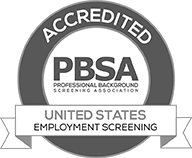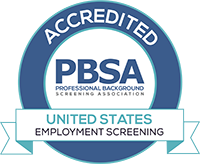BLOG
North Carolina Passed A Ban The Box Law
September 15, 2020
About The Law
Executive Order 158 was signed by North Carolina Governor Roy Cooper on August 18, 2020. The Order stipulates that state agencies:
- Are prohibited from asking job seekers about their criminal history during the initial stages of an employment decision.
- May not include questions about criminal records on job applications.
- Must not consider:
- Expunged records.
- Pardoned convictions.
- Charges that are not relevant to the position.
- Arrests that did not result in a conviction.
- Charges that were dismissed.
- Charges for which the person was deemed not guilty.
This Second Chance law is intended to help build communities, reduce recidivism and give “state government access to more qualified job applicants who now don’t even get the chance to show what good employees they would be.” Other employers are encouraged, but not required, to implement these changes. Read Executive Order 158.
Denying Employment Based On A Background Check
State agencies will run background checks on candidates after an initial interview is completed. If a background report includes a conviction that is relevant to the position being sought, it can be used as a factor in the decision making process.
The Executive Order notes that employment decisions can be based on a person’s criminal history if it is “demonstrably job-related and consistent with business necessity associated with the position, or if state or federal law prohibits hiring an individual with certain criminal convictions for a particular position.”
Before taking an adverse action based on the results of a background check, employers must complete a federally mandated process that gives the candidate an opportunity to dispute. State agencies in North Carolina must also give applicants a “reasonable opportunity to explain the circumstances surrounding the irrelevant conviction(s) and provide any proof of rehabilitation, including a certificate of relief.”
Some government jobs cannot be held by individuals who have any type of criminal history. The mandates above do not apply for those positions.
State Agencies In North Carolina Can Plan Ahead
Executive Order 158 was put into effect the date it was signed and will be enforced beginning November 1, 2020. By that time, state agencies are expected to:
- Establish a process to ensure compliance.
- Create criteria on how an applicant’s criminal history will be considered. This should be based on the U.S. Equal Employment Opportunity Commission's Enforcement Guidance on the Consideration of Arrest and Conviction Records in Employment Decisions under Title VII of the Civil Rights Act.
Running Background Checks
Several states enforce laws that are designed to help people who have been convicted of minor crimes. While employers are encouraged to learn about a candidate’s qualifications before checking for criminal records, they are equally encouraged to run comprehensive background checks. These reports contain information that help organizations create safe workplaces, conduct due diligence and find strong employees.
When you need background checks for your organization, please contact us. Our professional, experienced team can help develop screening solutions for any position. We are available to assist you Monday through Friday from 5am to 6pm PT.







